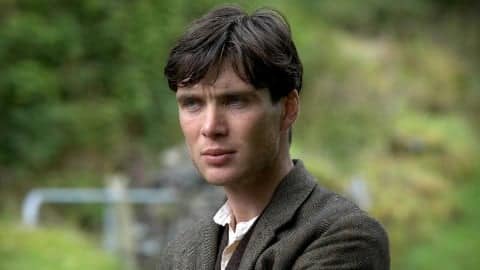Powerful Irish Drama: Ken Loach’s ‘The Wind That Shakes the Barley’ (2006)

Ken Loach’s “The Wind That Shakes the Barley” (2006) is a gripping and poignant portrayal of the Irish War of Independence and the ensuing Civil War. This powerful drama, which won the Palme d’Or at the Cannes Film Festival, masterfully combines historical context with deeply personal storytelling, resulting in a film that is both emotionally resonant and intellectually engaging.

Set in the early 1920s, the film follows the journey of two brothers, Damien (Cillian Murphy) and Teddy (Pádraic Delaney), who find themselves on opposite sides of the conflict. Cillian Murphy delivers a standout performance as Damien, a young doctor who initially plans to leave Ireland for a promising career in London but is drawn into the fight for Irish independence after witnessing brutal British reprisals against his fellow countrymen. Murphy’s portrayal is deeply affecting, capturing Damien’s transformation from a pacifist to a committed revolutionary with subtlety and depth.

Pádraic Delaney is equally compelling as Teddy, whose steadfast commitment to the cause and later to the treaty with the British government puts him at odds with his brother. The dynamic between the two brothers, driven by love, loyalty, and ultimately betrayal, forms the emotional core of the film. Their personal conflict mirrors the broader national struggle, highlighting the devastating impact of civil war on families and communities.

Loach’s direction is characteristically naturalistic, employing a documentary-like style that immerses the audience in the historical period. The film’s cinematography, by Barry Ackroyd, captures the rugged beauty of the Irish countryside, juxtaposing serene landscapes with the brutality of guerrilla warfare. The use of handheld cameras and natural lighting enhances the film’s authenticity, making the violence and hardship depicted feel immediate and real.

The screenplay by Paul Laverty is meticulously researched and thoughtfully written, balancing historical exposition with character-driven drama. It explores the complex motivations and ethical dilemmas faced by those involved in the struggle for independence. The dialogue is both poetic and raw, reflecting the passion and desperation of a people fighting for their freedom.
One of the film’s strengths is its unflinching portrayal of the cost of war. “The Wind That Shakes the Barley” does not shy away from the harsh realities of guerrilla warfare, the brutality of reprisals, and the moral ambiguities that come with violent resistance. The film’s title, taken from a 19th-century Irish ballad, symbolizes the fragility of life and the sorrow of loss, themes that permeate the narrative.